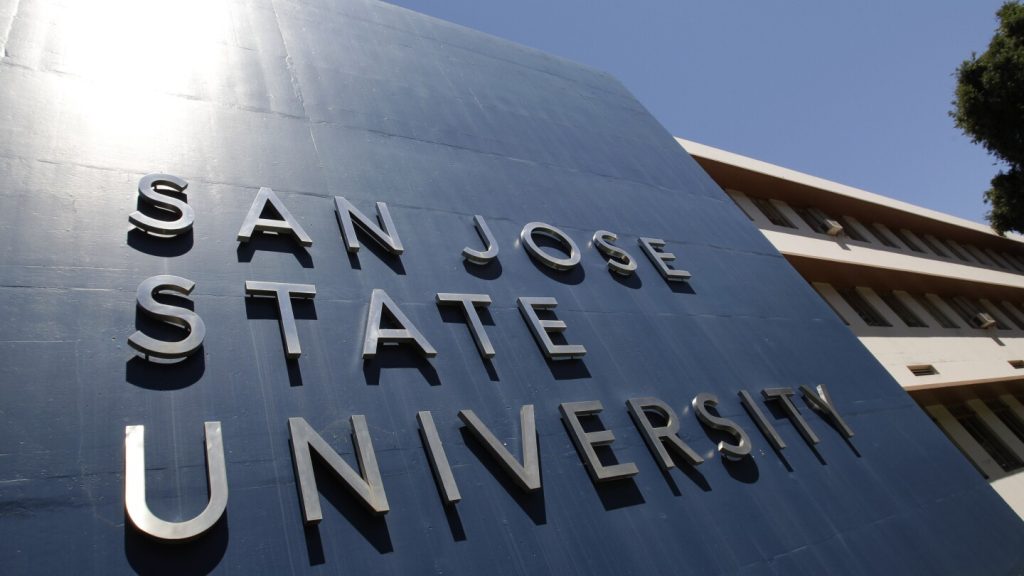Title IX Investigations and the Debate Over Transgender Athletes in Women’s Sports
1. Introduction to the Issue
The Trump administration has launched investigations into three educational institutions—San Jose State University, the University of Pennsylvania, and the Massachusetts Interscholastic Athletic Association—over concerns about transgender athletes participating in women’s sports. These investigations are part of a broader effort to enforce Title IX, a federal law that prohibits sex discrimination in education. The administration argues that allowing transgender athletes to compete on women’s teams deprives female athletes of fair opportunities. This move follows President Trump’s executive order, which aims to ban transgender athletes from competing in girls’ and women’s sports, citing concerns about fairness and equality.
2. The Investigations and Their Implications
The Education Department has opened these investigations proactively, without waiting for complaints, which is an unusual approach. San Jose State University is being investigated over the participation of a transgender woman on the women’s volleyball team. The University of Pennsylvania is under scrutiny because of Lia Thomas, a transgender swimmer who made history by winning a Division I championship in 2022. The Massachusetts Interscholastic Athletic Association is being examined after a high school basketball game where a transgender athlete’s participation led to a forfeit by the opposing team, reportedly due to injuries. These investigations signal a significant shift in the Education Department’s priorities under the Trump administration, as it aligns itself with the president’s agenda on gender identity issues.
3. Advocacy and Opposition
Advocates for transgender students have condemned President Trump’s executive order, arguing that transgender athletes do not pose a threat to sports, schools, or society. They emphasize that transgender students deserve the same opportunities as their peers to participate in athletics, learn, and grow in safe environments. Civil rights organizations, such as the National Women’s Law Center, have criticized the administration’s actions, stating that they perpetuate harmful stereotypes and undermine the rights of transgender students. On the other hand, supporters of the executive order argue that biological differences give transgender athletes an unfair advantage in women’s sports, thus necessitating restrictions to protect the integrity of female athletics.
4. The Broader Context of Title IX
Title IX has become a focal point in the debate over transgender rights in education. Under the Biden administration, federal rules were expanded to protect transgender and LGBTQ+ students, but a federal judge overturned these rules earlier this year, deeming them an overreach. The Trump administration has been using Title IX to target schools that accommodate transgender students, investigating cases where schools have allowed transgender athletes to compete on teams that align with their gender identity. This approach reflects a broader shift in civil rights enforcement under the Trump administration, which has prioritized issues like antisemitism and gender identity in education.
5. Legal and Financial Implications
The Education Department’s Office for Civil Rights has the authority to withhold federal funds from institutions that violate Title IX, though this typically requires judicial approval. The current investigations could potentially lead to financial penalties if the schools are found to be in violation of the law. However, legal experts note that the administration’s aggressive approach to enforcement is unprecedented, as investigations are usually not publicized until they are resolved. This new tack has left schools and athletic associations uncertain about how to proceed, with many seeking legal guidance to navigate the evolving landscape of civil rights enforcement.
6. Conclusion and the Way Forward
The debate over transgender athletes in women’s sports is far from resolved. While the Trump administration’s actions have drawn praise from those who believe biological sex should determine athletic participation, they have also sparked outrage from advocates who see them as discriminatory. As the investigations into San Jose State University, the University of Pennsylvania, and the Massachusetts Interscholastic Athletic Association unfold, the broader implications for transgender students and Title IX enforcement will continue to be a contentious issue. The outcome of these cases could set a significant precedent for how schools across the country approach the inclusion of transgender athletes in women’s sports.












